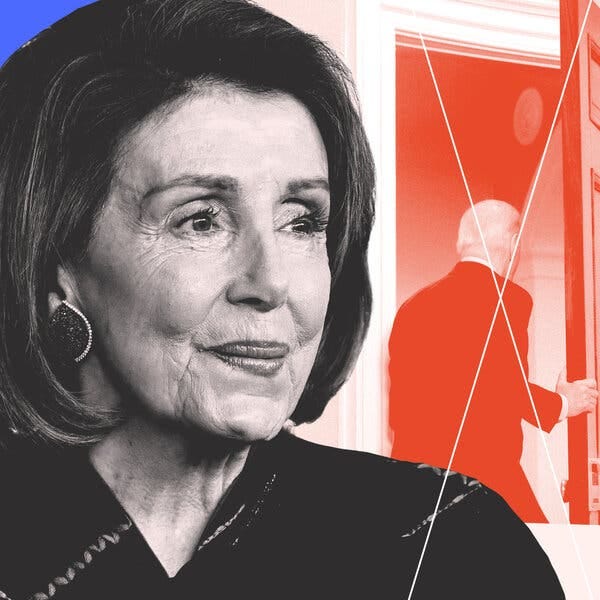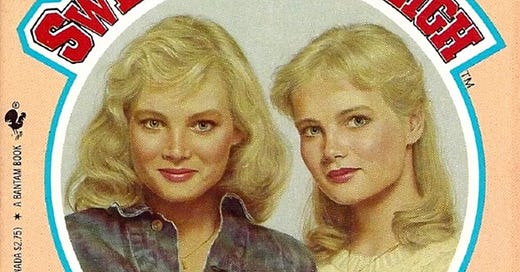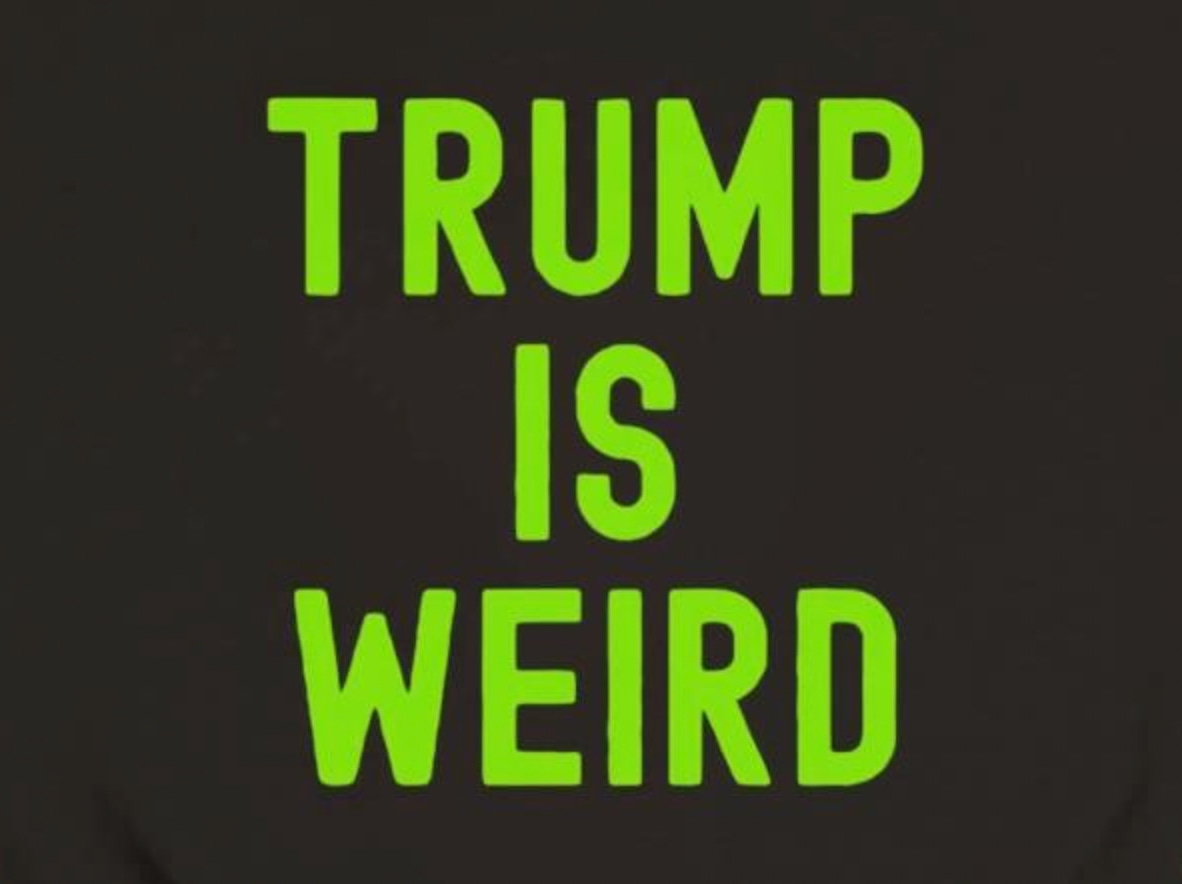Snowflakes. Groomers. Cucks.
For years, MAGA has approached politics the way a bully would approach a schoolyard — sparring with labels so nasty they seemed expressly chosen to appeal to the kind of people who stuffed nerds in lockers in 6th grade.
And for years Democrats, abiding by the mantra to go high, not low, have responded by trying to be the adults in the room: defending themselves with facts, with context, with earnest explanations that nobody remembers (if they defend themselves at all).
The problem with taking the high road is that it only works if politics is a sport played by people who act like grown-ups, which it is not. Also: Facts and context don’t make for particularly sticky messaging.
Enter: Weird.
Over the past two weeks, as “Brat” and coconut memes have taken over the internet and Kamala Harris inches closer to Donald Trump in the polls, the Democrats have finally gone dirty — deploying a bit of verbal jujitsu so delightfully petty it might just work.
I first noticed the use of “weird” in a news release put out by the Harris camp last week, in which her communications team — newly liberated from the previous candidate’s boomer syntax — recapped an interview Trump did on Fox. Asking “Is Donald Trump OK?,” they detailed a list of takeaways from the interview that made him unfit to serve. “Trump is old and quite weird?”
Then, they sent another email, this one wishing a “Happy World I.V.F. Day to Everyone Except JD Vance” — which was an excuse to highlight the G.O.P. vice-presidential nominee’s statements on abortion, as well as his strange comments about “childless cat ladies.” It was followed up by a post on on X: “JD Vance is weird and creepy.”
Weird and creepy. Simple, gut-punching words. Not a threat to democracy or a menace to the “soul of America,” not even “dangerous.” Nope, in the progressive vernacular of the moment, Trump and his party are just a bunch of weirdos, making weird policy proposals, weird comments about women, weird fashion choices and weirder shoe choices and promoting even weirder conspiracies. And of course, as any sixth grader who’s been called weird — or worse, “creepy” — by his peers knows, good luck trying to argue your way out.
Keep reading: Trump Is ‘Weird,’ Vance Is ‘Creepy.’ Finally, the Democrats Start Name-Calling.
* This is a NYT gift link; no subscription required.
RIP Francine Pascal, creator of Sweet Valley
She was the woman who gave us Jessica and Elizabeth Wakefield, the perfectly tanned California beauties who burned up bestseller lists in the 1980s — the first teen fiction to appear on the Times paperback bestseller list (alongside John Updike and Normal Mailer) and credited with inspiring a generation of women like me to read (and, arguably, a generation of millennial body dysmorphia too).
I had the pleasure of profiling Pascal, who died at 92 last week, back in 2011, as she was launching yet another spinoff of the series where her Sweet Valley High twins were now grown. She made me tea at her apartment, where she paged through stacks of hand-typed manuscripts and showed me the book’s original pitch letter, to Bantam, which apparently caused a flurry of “squealing women” in the office. She also showed me the Sweet Valley “Bible” — a thick guide to all things Jess and Liz, down to the shade of Jess’ pink sparkly legwarmers, their aquamarine blue eyes and their “perfect size 6” frames.
Ironically, Pascal had never set foot in California when she birthed her Valley dolls. A lifelong New Yorker, she grew up in a Jewish family in Queens, inspired by her brother, the playwright behind Broadway hits Hello, Dolly! and Bye, Bye Birdie.
Pascal conceived of Sweet Valley as a kind of teenage Dallas. And though her name was featured on each cover as “creator,” she hired a team of ghostwriters to turn her outlines into chapters — in part so she could work on more “serious” subject matter, which she did. She wrote several books before starting Sweet Valley, including a nonfiction account of the Patty Hearst trial. She also did a stint writing for soap operas with her husband, a columnist for Newsday. “There were times I didn’t want to be defined by this,” she told me. “Little did I know, this would be my career, the thing I'd be remembered for.”
Indeed, it was Sweet Valley that cemented Pascal in the YA literary canon.
But when the books first came out, in 1983, many booksellers refused to stock them. The New York Times snubbed the series, while librarians fought to keep their stacks free of the “skimpy-looking paperbacks,” as one library journal put it. And so, it was Pascal’s teen girl fans who defended her: buying a dizzying 250 million copies before the series published its 152nd and final title, in 2003; and revolutionizing the young adult book market in the process.
“Sweet Valley changed the dynamics of the industry,” said Barbara Marcus, the former president of Scholastic children’s books, under which she published The Babysitter’s Club, Goosebumps, and Harry Potter.
Pascal she brought some seriousness to the series, too. The girls may have been shallow, and the storylines superficial, but the books also tackled issues like date rape, drugs, and divorce.
“There were many superficial things about them, but when it came right down to it, readers were getting my politics, my ethics, my morals,” Pascal told me then. “And I wanted these girls to drive the action.”
Nancy Pelosi and the Art of Nudging Out Presidents

It feels like 100 years ago, but just a week or so ago (what day is it?) I wrote a column about how gratifying it was to watch Nancy Pelosi work — as she organized a sustained pressure campaign to get Joe Biden to drop out. If you’re interested, here is a gift link to that article as well.
As always, thanks for reading!






In a weird coincidence, I have that very Sweet Valley book in my hands at the moment. I just showed it to my therapist and discussed how detrimental that series was to me when growing up! I had no idea that Francine Pascal died. I feel a little bad now, because I just talked about how angry I am at her for writing the books the way she did!
As Tom Friedman said this morning, calling Trump supporters “weird” is going to alienate them and, more importantly, the swing voters—no better way to prove Dems are snobby elitists. Why do Dems continue to be so dumb re being shrewd campaigners? Riding what Dems think is their moral high-horse is not enough. Insulting the opposition is a sure way to lose.